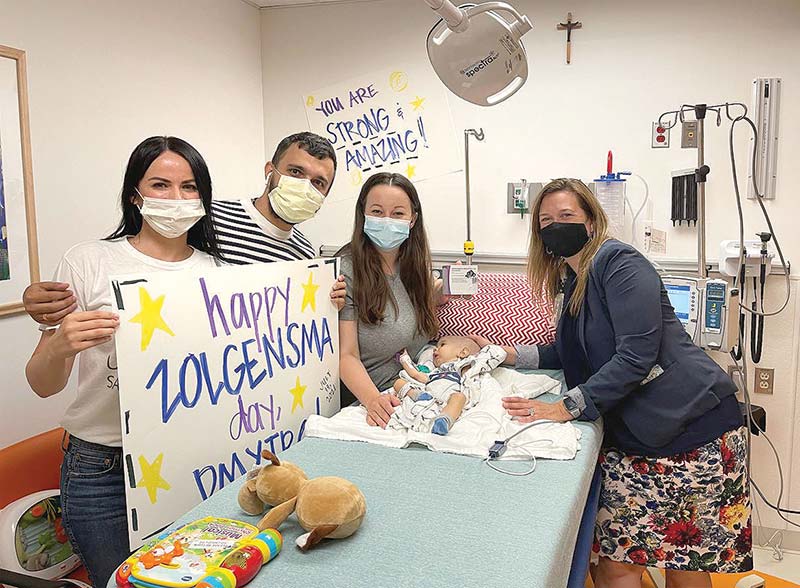NEW YORK – Having raised more than $2 million dollars in just 80 days, the family and friends of Dmytro Svichynsky, the Ukrainian boy born with Type 1 Spinal Muscular Atrophy (SMA), saw the baby receive a lifesaving dose of the multi-million-dollar drug Zolgensma at the Children’s Hospital of San Antonio in San Antonio, Texas, on July 15.

Dmytro Svichynsky, who was born with Type 1 Spinal Muscular Atrophy (SMA), recovers after receiving a treatment of the medication Zolgensma at the Children’s Hospital of San Antonio in San Antonio, Texas, on July 15. He was joined by his neurologist, Dr. Melissa Svoboda (right), Alyona Garcia of the organization Ukrainian San Antonio (left), and his parents Mariia and Vitaliy Svichynsky.
